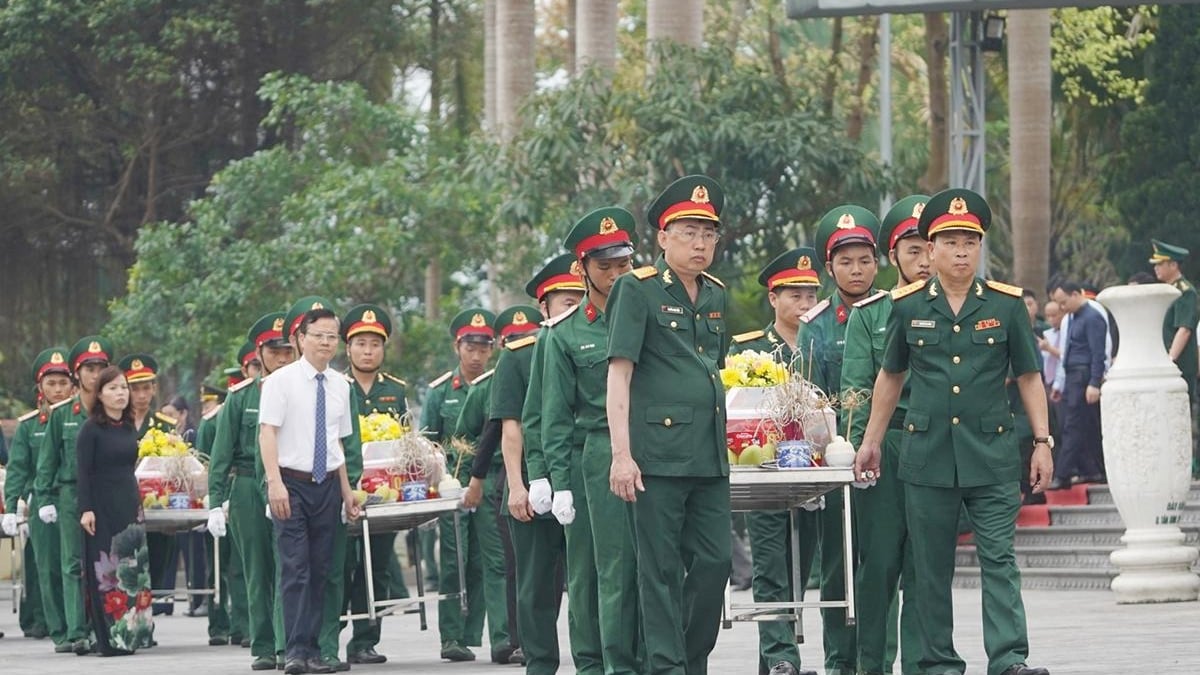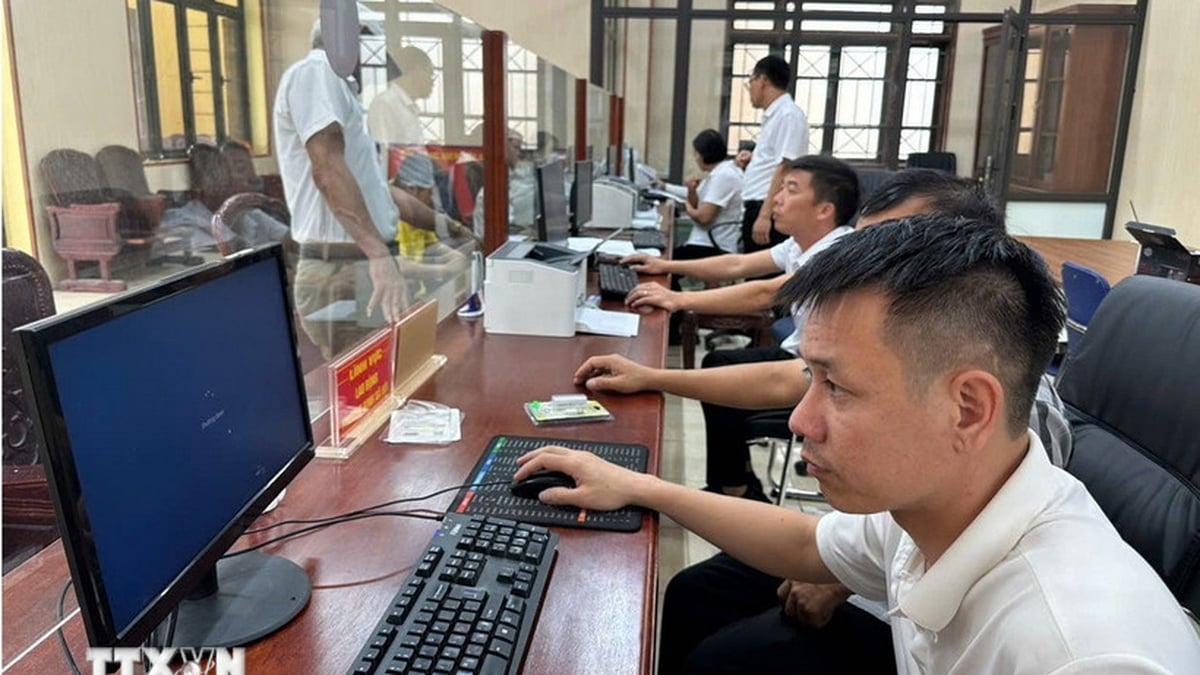According to the family of the 5th grade boy, when he and his classmates were taking a break during physical education class, the boy saw Mr. Ngo walking by and called out his name.
This action made Mr. Ngo very angry, thinking that the student was being too disrespectful to him. He approached the group of students, identified the boy who had just called his name, and immediately slapped the male student.
Although the male student bowed and apologized to Mr. Ngo twice, and another teacher tried to stop him, Mr. Ngo continued to slap the male student. According to the male student, he was slapped 9 times by the teacher. The boy's family said his face was swollen, his ears were ringing, and he suffered from a persistent headache after the incident.
"My son was extremely panicked after the incident. I really don't understand why a grown man and a teacher could hit a child like that," the boy's mother said indignantly.
The family took the boy to the hospital for examination, and the doctor diagnosed him with minor injuries to his head and face. The family then reported the incident to the police, as well as worked with the school board, requesting appropriate disciplinary action against Mr. Ngo.
During the meeting with the parents, the school board invited Mr. Ngo to attend. The boy's mother asked Mr. Ngo: "Who gave you the right to hit my child? If my child does anything wrong, you can contact me. The teachers have my phone number, right?"
Responding to the press, Mr. Ngo admitted to hitting the student but said his actions were reasonable. "I have the phone number of the student's parents, but I am over 50 years old. The student called me by my name very loudly and mockingly. That attitude was extremely disrespectful. Therefore, I slapped the male student. I think he needs to learn to respect me and my words," Mr. Ngo explained.

The family took the boy to the hospital for examination. The doctor diagnosed that the boy had minor head and facial injuries after the incident (Illustration: iStock).
In response to public controversy, the school temporarily suspended Mr. Ngo from teaching and offered to compensate the student’s family with 5,000 yuan (nearly 18 million VND). However, the family of the 5th grade boy refused this compensation from the school.
Local authorities have now launched an investigation and pledged to handle the incident strictly in accordance with the law. This incident has sparked much controversy on Chinese social media.
"If you are a parent, you cannot accept this teacher's actions. As a teacher, this man has crossed the line and clearly has violent tendencies. This person needs to be fired," one netizen commented.
"Teachers can teach students, but they cannot use violence," another netizen commented.
However, some people expressed sympathy for the male teacher. "This child is too rude. Respecting teachers is a Chinese tradition. Nowadays, many people seem to have forgotten this moral standard," one social media user said.

In a classroom, each student has a different living background (Illustration: iStock).
How to help elementary school teachers control anger
Teachers need to be ready to face and handle sudden emotional states from students, because at this age, their ability to self-control is not yet stable.
In a classroom, each student has a different living background. Students with special family circumstances may be going to school with unstable moods. Many times, negative emotions can cause them to have impulsive attitudes and behaviors, lack of respect for teachers, and lack of goodwill towards classmates.
Instability can manifest in many forms. Here are some tips for teachers to quickly defuse tense situations.

At the time when the student has not regained his composure, the teacher should not argue right or wrong (Illustration: iStock).
At the time of anger
- Breathe: When a student shows signs of losing control of his or her attitude and behavior, the teacher needs to calm down for a moment and take a few breaths before reacting. Dealing with a loss of control with another loss of control will only make the situation worse. To regain composure in an unexpected situation, the teacher should count from 1 to 3 mentally, before moving on to the next step.
- Encourage dialogue: The teacher then initiates a dialogue with the student who is losing control, asking what problem the student is having. If the student is willing to talk, encourage the student to elaborate on the problem. This helps the student to release his emotions and reduce the state of losing control.
- Acknowledge emotions: At the time when the student has not yet regained his composure and is not in control of himself, teachers should not reason right or wrong. Teachers themselves may also feel a little angry after the incident that just happened. What is necessary at this time is for teachers to restrain and control themselves.

Many students have spontaneous negative attitudes or behaviors because they do not know how to control their emotions (Illustration: Freepik).
After the anger
These things can only be done when both teachers and students have calmed down and both sides can control themselves well.
- Express concern: Teachers talk to the student who caused the problem again to get more information, to see if there is anything wrong with that student. Teachers need to confirm to the student that his/her actions make teachers worried and think.
If possible, teachers should reduce scolding, explain gently with logical thinking and a loving constructive spirit.
If the student has caused any harm while losing control, ask him to take action to fix the problem. For example, if he said something wrong to someone, ask him to sincerely apologize.
- Dialogue with parents: When talking to the parents of a student who is causing problems, teachers should maintain a positive attitude. This will help the relationship between teachers and parents become better, more cooperative, and more friendly.
A positive attitude also helps make the conversation easier. Tell the parent what happened, then listen to the parent add their own perspective.
- Teach students how to control their emotions: Many students have negative attitudes or behaviors because they do not know how to control their emotions.
Teachers can share simple ways to help students improve their situation, such as deep breathing. Additionally, if possible, students should learn to remove themselves from the situation that is making them feel agitated and give themselves some time alone to calm down.
These simple tips will help students learn how to help themselves. When teachers see a student losing control, they should remind them to immediately practice the measures that have been shared.
- Gather information: If a student frequently loses control of himself, teachers and parents need to gather information about this phenomenon.
Pay attention to the times of day when your child is most likely to become agitated, the things that trigger your child's out-of-control behavior, and who is most likely to be involved in your child's out-of-control behavior. The purpose of collecting information is to identify triggers in your child.
- Plan to cope with triggers: Once you identify triggers, teachers and families can work together to plan ways to help your child overcome triggers and triggers.
For example, if a certain activity often makes a student feel difficult to control his or her attitudes and behavior, family and teachers should have a clear dialogue with the student about this activity.
Planning with your child, to prepare mentally before actually participating in this activity, will help your child overcome situations that can easily cause irritation. From there, your child will gradually practice the ability to control himself.
According to SCMP/Teacher Created Materials
Source: https://dantri.com.vn/giao-duc/giao-vien-tieu-hoc-bi-dinh-chi-cong-tac-sau-khi-tat-hoc-sinh-9-lan-20250401205959207.htm

























![[Photo] Signing of cooperation between ministries, branches and localities of Vietnam and Senegal](https://vphoto.vietnam.vn/thumb/1200x675/vietnam/resource/IMAGE/2025/7/24/6147c654b0ae4f2793188e982e272651)













































































Comment (0)